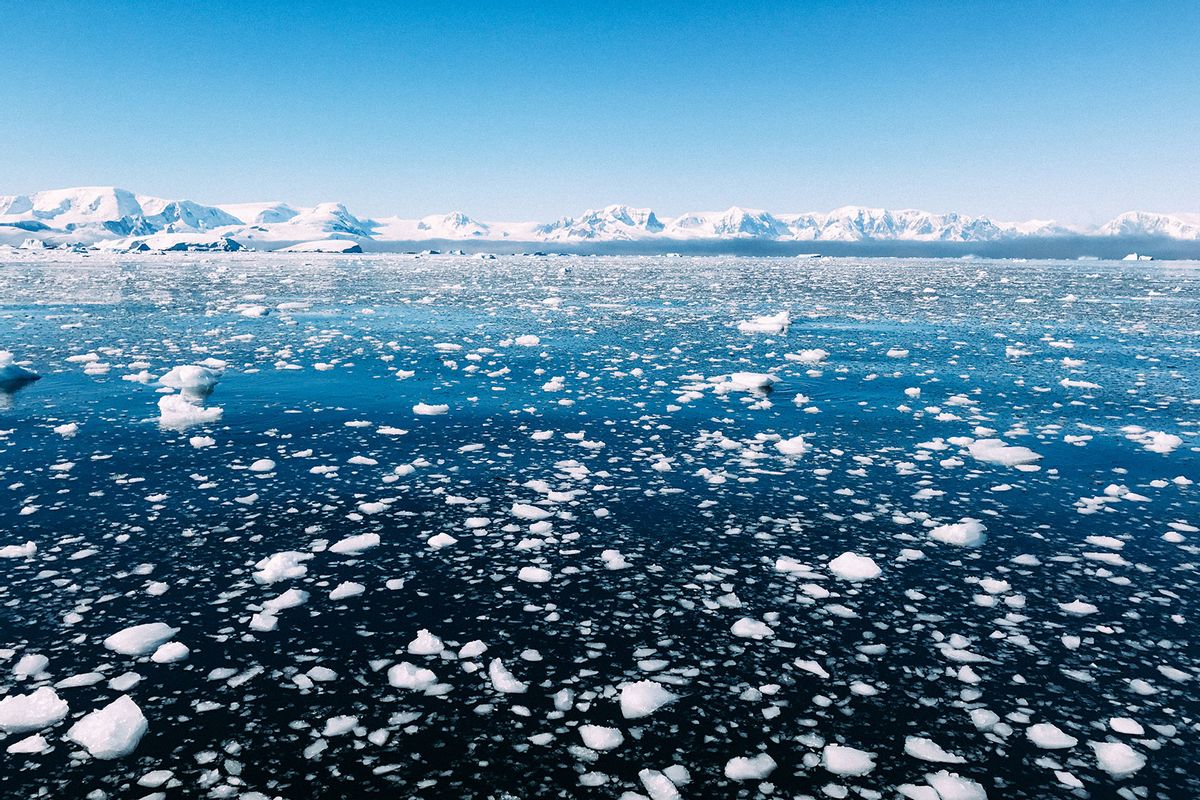Imagine a future in which sea level rise is so severe that apocalyptic floods are a regular occurrence. Hundreds of millions are displaced as their coastal regions become uninhabitable, and as humanity struggles to survive, the map of the Earth's southernmost region gets radically redrawn. According to a recent study by the British Antarctic Society, climate change has passed a crucial tipping point for the West Antarctic Ice Sheet. There is simply no way for this massive natural wonder to avoid massive melting.
"Mitigation of greenhouse gases now has limited power to prevent ocean warming that could lead to the collapse of the West Antarctic Ice Sheet."
"We find that rapid ocean warming, at approximately triple the historical rate, is likely committed over the twenty-first century, with widespread increases in ice-shelf melting, including in regions crucial for ice-sheet stability," the authors write. "These results suggest that mitigation of greenhouse gases now has limited power to prevent ocean warming that could lead to the collapse of the West Antarctic Ice Sheet."
Even worse, all of the climate simulations produced by the United Kingdom's national supercomputer arrive at the same conclusion: regardless of whether humanity reaches its most ambitious Paris Agreement targets or mid-range emission scenarios, we will continue to see an ever-accelerating increase in the melting of the West Antarctic Ice Sheet during the 21st Century.
This research came at the same time a paper published in the journal BioScience updates an important 2019 document known as the World Scientists Warning of a Climate Emergency. The original document, which was signed by over 15,000 scientists in more than 163 countries, declared that "scientists have a moral obligation to clearly warn humanity of any catastrophic threat and to 'tell it like it is'" before concluding that "planet Earth is facing a climate emergency."
The update states that "time is up" in terms of staving off ecological catastrophe due to human-caused climate change, adding that we are "entering an unfamiliar domain regarding our climate crisis, a situation no one has ever witnessed firsthand in the history of humanity."
We are "entering an unfamiliar domain regarding our climate crisis, a situation no one has ever witnessed firsthand in the history of humanity."
The twelve co-authors note that, out of the 35 vital signs for Earth tracked in the original report, 20 are now at record extremes, including 38 days with recorded global temperatures that exceeded the planet's preindustrial levels by more than 1.5 degrees Celsius. In addition, Earth may have had an average global surface temperature recorded on one day in July that is the highest seen on Earth in 100,000 years. All of these developments pose threats to humanity ranging from large regions becoming uninhabitable to growing issues with food security. Indeed, the number of people facing chronic hunger increased by 122 million between 2019 and 2022, from 613 million people to 735 million people.
Want more health and science stories in your inbox? Subscribe to Salon's weekly newsletter Lab Notes.
"Scientists have a moral obligation to clearly warn humanity of any catastrophic threat and to 'tell it like it is.'"
“Without actions that address the root problem of humanity taking more from the Earth than it can safely give, we’re on our way to the potential collapse of natural and socioeconomic systems and a world with unbearable heat and shortages of food and freshwater,” study lead co-author and former Oregon State University College of Forestry postdoctoral researcher Christopher Wolf said in a statement.
A study last month in the journal Science Advances arrived at a similar conclusion. It noted that there are nine planetary boundaries that humanity cannot exceed if life on Earth is to remain sustainable. Climate change is only one of those boundaries, and it is one that humanity is obviously exceeding. Yet we are also at existential risk for six of the nine categories, including land system change, freshwater change, biosphere integrity, novel entities (like plastics, pesticides, industrial chemicals, etc.) and the flows of biological and geological chemicals.
"We can think of the Earth's resources as the currency that supports us," the study's lead author Dr. Katherine Richardson, professor in Biological Oceanography at the University of Copenhagen's Sustainability Science Centre, told Salon at the time. "The planetary boundaries framework is like a bank statement — it tells us how much of various components (resources) of the Earth system we can allow ourselves to us without greatly increasing the risk that our activities will lead to dramatic and potentially irreversible changes in the overall environmental conditions we experience on Earth."



Shares